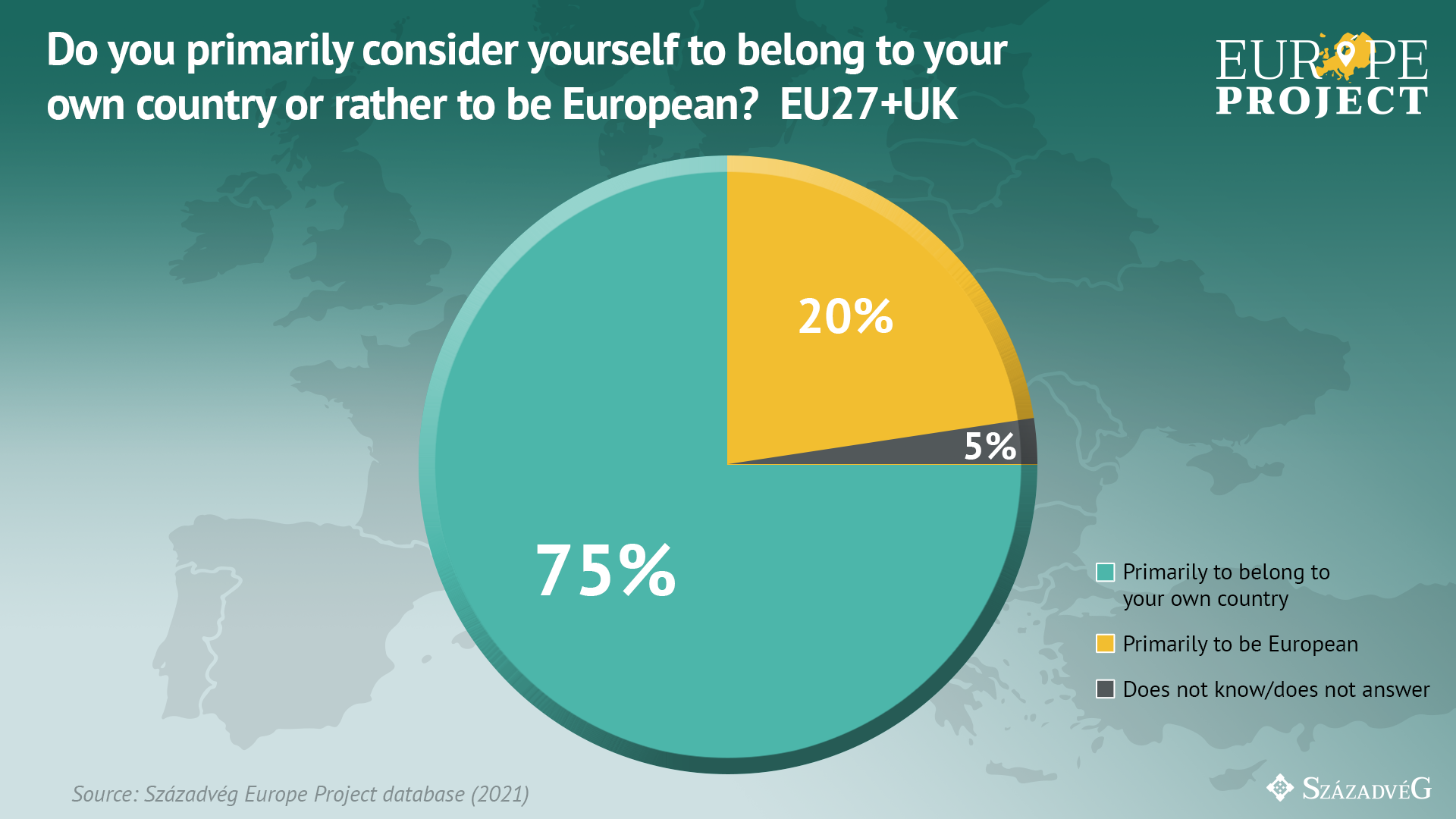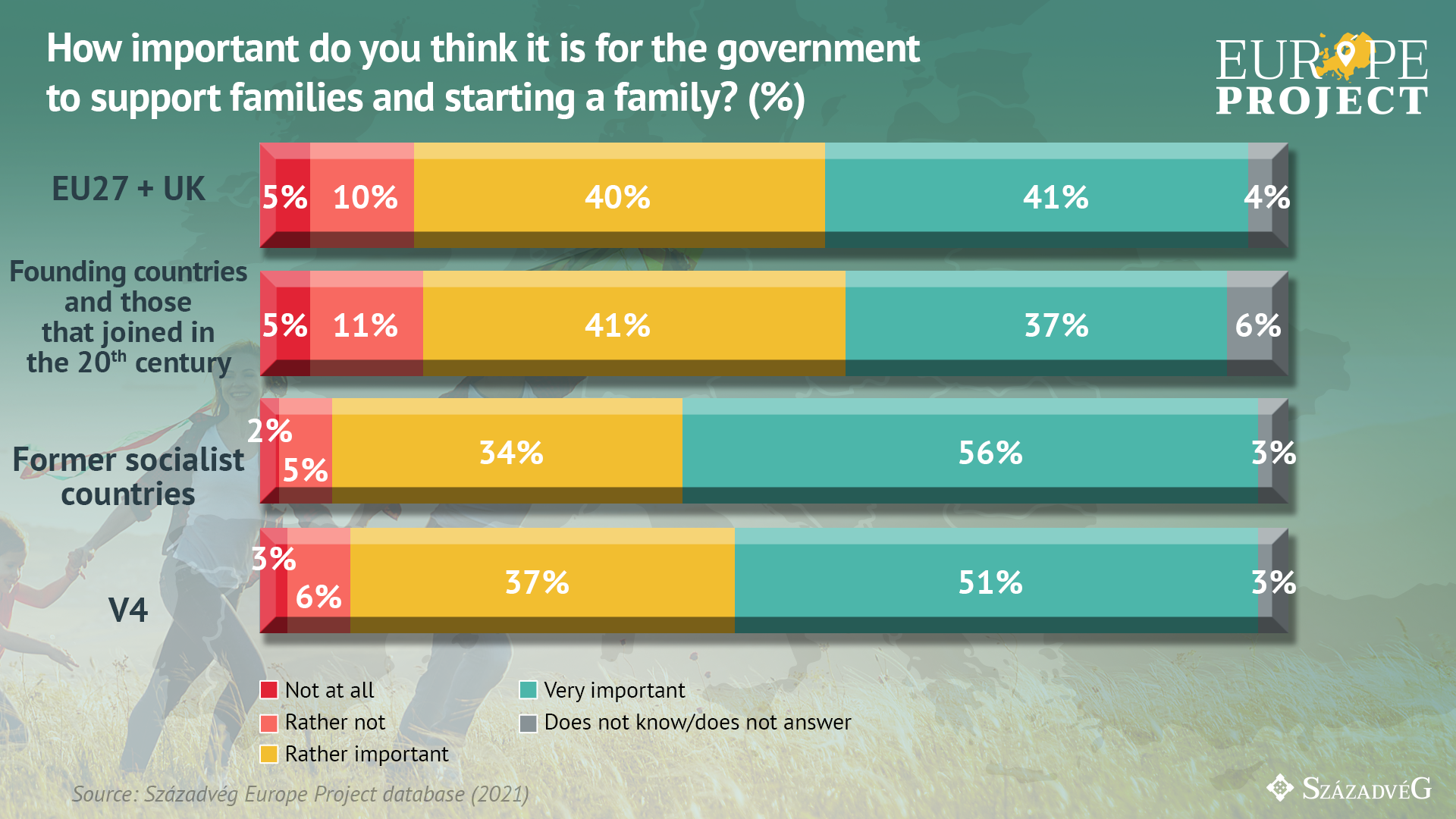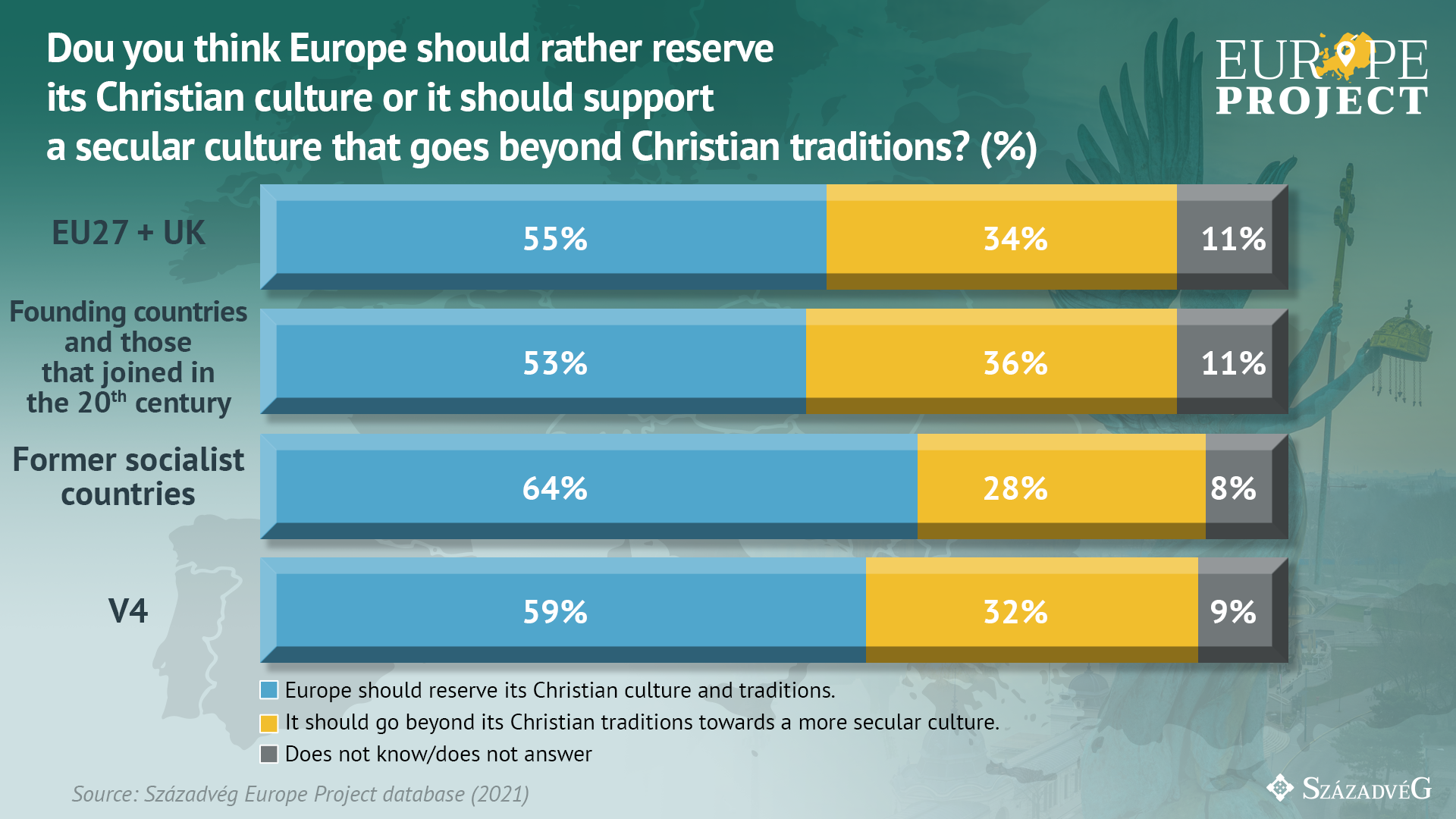The citizens of the V4 countries are committed Europeans, but they are interested in the cooperation of nation-states instead of a federal Europe with homogenising efforts.
At EU level, one of today’s most pressing strategic debates is about its future. One camp wants to shift the EU towards a federal United States of Europe, while the other wants to keep it as a cooperation of sovereign nation-states along mutual benefits and interests, as the founding fathers dreamed of. An important question regarding the outcome of federal versus sovereign confrontation is whether there exists a European identity above national identity. The Visegrad countries are often accused by Brussels and the old members of not being committed enough Europeans.
Research clearly shows that those who place their European identity above their national identity are still a minority in Europe (20 percent). At the same time, it can be stated that of all the groups of countries surveyed, the V4 countries rather consider themselves primarily to be European (24 percent), while the proportion of those who put their national identity first is lower (71 percent). The latter indicator is 75 percent at the level of the countries surveyed. All this shows that the statements questioning the Visegrad countries’ commitment to Europe, which try to make them second-rate Europeans, are unfounded and offensive. Among the V4 countries, the proportion of Hungarians primarily considering themselves Hungarian is the highest (86 percent), while only 11 percent claim primarily to be European. At the other end of the ranking are the Poles (31 percent), and only Luxembourg has a higher proportion, 41 percent, of those who primarily consider themselves European.
The research also shows that the V4 countries insist more on retaining nation-state competencies than other countries, and only a small proportion of them would transfer more of them to the EU: 54 percent of the Visegrad countries stand for retaining nation-state competencies, while only 30 percent oppose them. On average, these proportions are 48 percent and 36 percent, respectively, in all countries surveyed. All this suggests that the vision of an EU organised on a federal basis is less attractive to the V4 countries, compared to the old members. It is also interesting that of all the groups of countries included in the research, the citizens of the V4 countries think the least that double standards prevail against their country at EU level. In their case, less than half of those surveyed, 44 percent, perceive double standards, while this indicator is significantly higher, 56 percent, on average in all countries surveyed.
Central and Eastern European countries, including the Visegrad Group members, see the solution to the democratic challenges facing whole Europe in supporting domestic families and childbearing, rather than in population change.
The research also points out that there is a significant difference of more than 10 percentage points in the issue of support for families and starting a family between the typically Western European founding countries and the Northern and Southern European countries that joined in the 20th century, and the Central and Eastern European former socialist countries that joined in the 21st century. The latter group also includes the V4 countries. While in the former socialist countries, 90 percent of the population consider the support for families important, this indicator is only 78 percent for older members. It is clear that the difference in this issue is mainly between the Eastern members of the EU (the indicators for Greece and Cyprus are similar to those of the former socialist countries) and the Western and Northern members of the EU. In this respect, the indicator of the Visegrad Group is above the EU average (88 percent), which is slightly below the data typical of all former socialist countries. Of all the countries surveyed, the highest proportion in Hungary, 96 percent, believe that the support for families and starting a family is an important social issue.
Central and Eastern European countries are more committed to Christian values
The migration crisis in Europe, coupled with the efforts of postmodern tendencies to question Christian-conservative and community values and to interpret individualism even in an extreme form, has brought to the surface fault lines of a cultural nature. The research shows that the citizens of the former socialist countries, including the Visegrad countries, are much more likely to be committed to preserving Christian traditions and culture than the old members.
The research also showed that the Visegrad countries, despite their drifting to the opposite side of the barricade several times throughout history, are linked by a unique Central European value system and perspective. This is evidenced by the fact that the same challenges elicit similar responses in their case, and that these responses are typically different from those of the countries located eastward and westward to them. All this has the potential to become an unavoidable European political pole if the V4 countries can further deepen their political relations and economic cooperation, thus increasing their weight within the EU.
In the first half of 2016, the Századvég Foundation conducted a public opinion poll survey covering all 28 European Union Member States, with the aim to analyse the opinions of EU citizens regarding the issues that most affect the future of the EU. In a unique way, Project 28 conducted the widest possible survey of 1,000, that is a total of 28,000 randomly selected adults in each country. Gaining an understanding of society’s sense of prosperity and mapping the population’s attitudes towards the performance of the European Union, the migration crisis and the increasing terrorism were among the most important goals of the analysis. The Századvég Foundation, on behalf of the Hungarian Government, conducted the research again in 2017, 2018 and 2019, which continued to reflect on the topics that most determined the European political and social discourse.
In 2021, the aim of the survey is again to map the population’s attitude towards the most important public issues affecting our continent. In addition to society’s sense of prosperity, the performance of the European Union and the attitudes towards the migration crisis, in line with the latest challenges affecting Europe, the dominant theme of this year’s poll is the coronavirus pandemic, climate change, energy supply and family policy. In addition to the European Union Member States, the 2021 research covered the United Kingdom, Norway, and Switzerland, interviewing a total of 30,000 randomly selected adults using the CATI method between 1 and 15 September.



